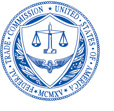Tests for Defective Drywall
Some U.S. homes built between 2003 and 2008 contain imported drywall, known in the press as Chinese drywall. Some consumers who live in these homes have reported problems, including a strong sulfur smell, like rotten eggs; health issues, like irritated and itchy eyes and skin, difficulty breathing, a persistent cough and headaches; and premature corrosion or deterioration of certain metal components in their homes, like air conditioner coils and wiring behind electrical outlets and inside electrical panel boxes.
The Consumer Product Safety Commission (CPSC) is the lead federal agency investigating damage to homes blamed on imported drywall. The effort to identify the causes of the damage also involves the U.S. Environmental Protection Agency (EPA) and the Centers for Disease Control and Prevention (CDC). Other federal agencies, including the Federal Trade Commission (FTC), the nation’s consumer protection agency, and state law enforcement and health authorities are investigating the issue, as well.
The Federal Interagency Task Force has performed significant testing of drywall and homes, and found a strong association between the problem drywall, the hydrogen sulfide levels in homes with that drywall, and corrosion in those homes.
The FTC says homeowners should be on the alert for anyone trying to sell test kits, inspections, and quick fixes for tainted drywall. The Federal Interagency Task Force is studying testing and remediation protocols for affected homes, but no federally-approved testing kits or remediation methods currently exist.
You can learn more about the federal government’s drywall investigation, and sign up for email alerts, at drywallresponse.gov. File a complaint, with the CPSC online, by calling 1-800-638-2772 or via email, info@cpsc.gov.
This article was previously available as Defective Imported Drywall: Don’t Get Nailed by Bogus Tests and Treatments.
